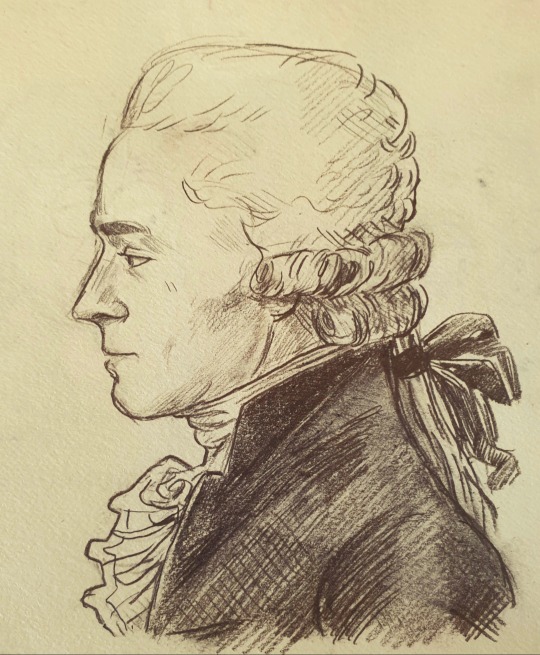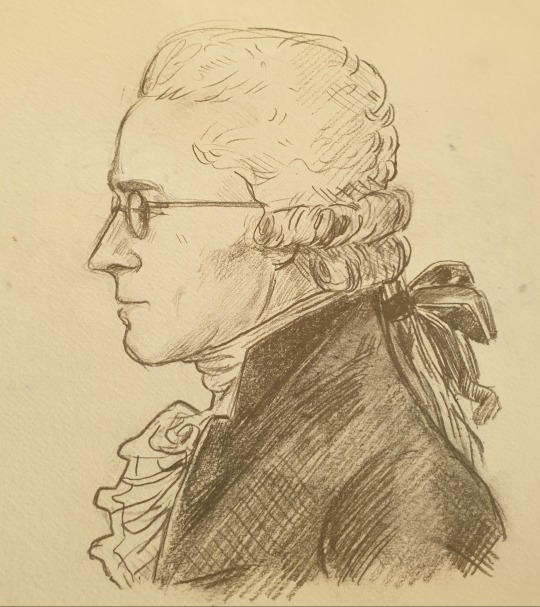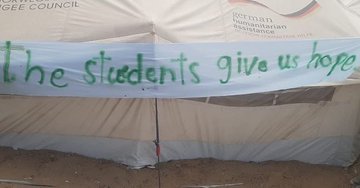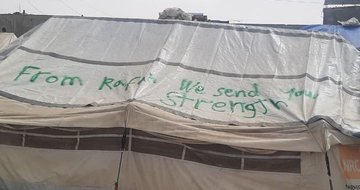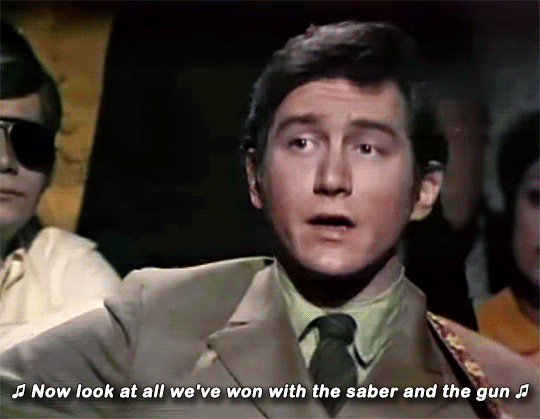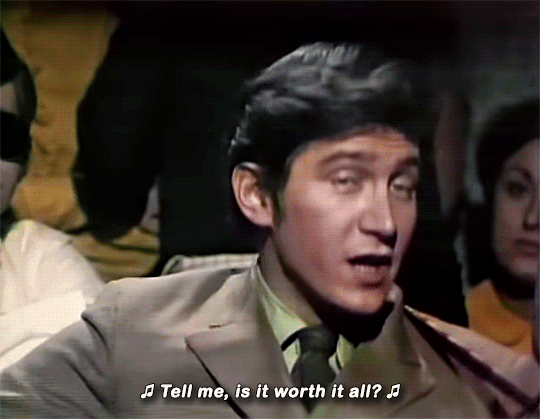Text
Tha leigheas air gach càs, ach cha'n eil leigheas air a' bhàs.
There's a cure for every condition, but there is no cure for death.
- East Sutherland proverb
2 notes
·
View notes
Text
'All women together ought to let flowers fall upon the tomb of Aphra Behn (...) for it was she who earned them the right to speak their minds.'
- A Room of One's Own, Virginia Woolf
0 notes
Text
Loving animals is a privilege. To see the richness and beauty of their lives. It's in every cat sitting on a windowsill. It's every dog that people are walking. It's also the flies that lose their way in my apartment. It's the spiders that used to scare me. It's the hope-you're-safe I sent towards the rat I saw crossing the road. It's happy cows and pigs and chickens. It's all the animals that I know I'll never see, but that do exist in all their splendidness. All these individuals, all these lives, all these minds.
Loving animals is also hard. It's seeing their dead bodies plastered on billboards. On people's plates. In the butcher's window just around the corner. It's 90% of the grocery store I refuse to buy. It's knowing there is a street in my town where in one building they're saving animals deemed worth saving, and in the one next door their throats get slit. It's animal abuse that only counts when it's an animal we think is cute. It's fish not even getting the respect of being count as individuals. Loving animals means living in a world full of murder. A reality so inescapable the only safe space is my own house. And the people I love are all complicit.
127 notes
·
View notes
Text
She’s a 10 but she lives off of academic validation while simultaneously procrastinating like she’s been promised immortality
12K notes
·
View notes
Text
just came across this beautiful rendition of siúil a rúin by irish-palestinian artist roisin el cherif. this song has always been close to my heart, especially after it's use in the nightingale, a film that explores the (ongoing) colonial violence on the island that i call home.
i really love the way that she weaves the arabic language into this song, as well as the influences from both irish and palestinian styles of music.
all the proceeds of the release are being donated to the doctors without borders gaza emergency regional fund so if you love her rendition as much as i do i would really recommend purchasing it on band-camp (i've linked it above).
360 notes
·
View notes
Text
Regarding Welsh and Gaelic, there is no easily identifiable standard as you say, so usually we ask the question in terms of the language variety people identify as being spoken in media broadcasting and in school - the dialect that has the highest social prestige around them. That is because standard variety(ies) of a language can emerge either from the imposition of a policy of language planning, or in the emergence of common practice in usage in public domains. As such, Welsh and Gaelic speakers might have a different sense of what the standard is where they live, so I did not want to impose any definition on the matter.
For Gaelic, we also compare young respondant's answers to the SQA's Gaelic Orthographic Conventions (as it only became widely accepted in the 1990s, it of course cannot be viewed as the standard as of now), and for Irish, the standard is An Caighdeán Oifigiúil. For Welsh, G. German noted that "a spoken form of the Welsh literary language is clearly gaining in strength at the expense of local forms of Welsh dialect". What this spoken form is, is for speakers to define. I have read that one of its features is the favouring of a linguistically unified form of speech characterised by neoligisms, deemed artificial by many local colloquial speakers.
Regarding other comments: while standardisation of languages mostly concern their written form (though we have examples of standardisation of languages carried out for strictly oral purposes), it often greatly influences every-day speech, as it was the case for Irish. So that is what we are looking at concerning the spoken language - not a standard, but a speech more or less influenced by written standards.
Thank you so very much for all the answers and feel free to ask any more question/clarification! Again because I focus on the idea that language standard is inherently ideological, and not on describing/pinpointing said 'standards', I leave the questions up to personal interpretations 😊
Irish, Welsh and Scottish Gaelic speakers, I need your help! 🇮🇪🏴🏴
For a piece of academic writing I am working on right now, I was wondering if in the context of those three languages, you have positive or negative examples of:
1) The presence of non-standard dialects digitally or in the media (any content creator you know, any regular speakers on the radio that actively uses a non-standard dialect, or on the contrary, you only encounter standard Irish/Welsh/Gaelic. If you have any example of non-standard writing too, for example in the printed press, I am all ears)
2) Do you speak and/or write a non-standard dialect and have been looked down upon for it by other speakers? If yes what dialect and in what context
3) What do you think about purification practices in which loan-words from English are replaced by new words? Which words do you use? If you study the language formally, which are taught to you?
Thank you, and please reblog!
- A grateful Celtic student
61 notes
·
View notes
Text
Irish, Welsh and Scottish Gaelic speakers, I need your help! 🇮🇪🏴🏴
For a piece of academic writing I am working on right now, I was wondering if in the context of those three languages, you have positive or negative examples of:
1) The presence of non-standard dialects digitally or in the media (any content creator you know, any regular speakers on the radio that actively uses a non-standard dialect, or on the contrary, you only encounter standard Irish/Welsh/Gaelic. If you have any example of non-standard writing too, for example in the printed press, I am all ears)
2) Do you speak and/or write a non-standard dialect and have been looked down upon for it by other speakers? If yes what dialect and in what context
3) What do you think about purification practices in which loan-words from English are replaced by new words? Which words do you use? If you study the language formally, which are taught to you?
Thank you, and please reblog!
- A grateful Celtic student
#Irish#Gaelic#Scottish Gaelic#Welsh#gaeilge#cymraeg#Gàidhlig#Ireland#Scotland#Wales#Celtic languages#Minroty languages#Linguistics#Standardisation#Celtic#Celtic studies#Languages#Alba#Mostly for native speakers but also non-native fluent speakers that regularly interact with the language
61 notes
·
View notes
Text
“Releasing other animals from that ‘property’ status is fundamental to dismantling the project of capitalism.”
— Christopher Sebastian, “Black Liberation and Animal Liberation”, The Vegan Vanguard
375 notes
·
View notes
Text
Some good news that should be the minimum, but hey this is France:
The Brevet des collèges (national exam taken at the end of middle school) will be available in Basque and Breton, though supporting documents will still be in French from what I gather. This was the status quo until last November when the Éducation Nationale attempted to forbid it. That this is not enshrined in law in 2024 and still largely depends on students' parents mobilisation and that of some députés is mind-boggling, but that is the norm for many minority languages in Europe.
129 notes
·
View notes
Text
Okay but damn The Ballad of Songbirds and Snakes (movie) was good, I take The Hunger Games to be exemplary generally but bonus points for a well rounded prequel
Yes, Snow was groomed, but he was right - chaos in his life and political chaos are absolutely one and the same, and to control the latter is to control the former. His emotional survival is inseparable from that of the ruling system; he is the embodiment of the regime's most monumental and perverse achievement.
#the hunger games#Actually considering going back to my teenage self and read it when I get the time
3 notes
·
View notes
Note
if your family was dying bc of hunger and the only think you could eat was meat, would you??
if you were not dying of hunger, lived on a planet with seven billion people, had access to unlimited fresh fruits, vegetables, grains, legumes, beans, nuts, seeds and other healthy foods, and knew animals suffer and die horrible deaths just so you can exploit them, would you continue to eat them?
stop asking me hypothetical questions and ask yourself a real one xx
1K notes
·
View notes
Photo

On this day, 17 April 1975, the Communist Party of Kampuchea (aka the Khmer Rouge) seized power in Cambodia after overthrowing the corrupt military dictatorship which had been backed by Western powers.
They forcibly evacuated the cities, attempting to create an agrarian society to produce rice to sell on the world market to fund industrialisation.
Their brutal, paranoid and ill thought-out nationalist policies were a disaster, and led to the murder or deaths of up to a quarter of the country’s population.
After Vietnamese troops eventually toppled them, military aid was then funnelled to the Khmer Rouge by the US, UK and China to continue their reign of terror in areas they still controlled.
This is a useful overview of the events: https://libcom.org/library/%E2%80%9Cif-we-have-rice-we-can-have-everything%E2%80%9D-%EF%BB%BF%EF%BB%BF-critique-khmer-rouge-ideology-practice https://www.facebook.com/workingclasshistory/photos/a.296224173896073/1403689843149495/?type=3
74 notes
·
View notes
